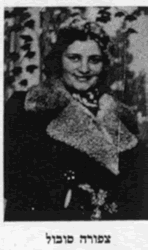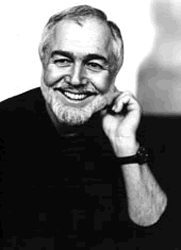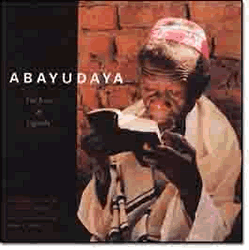Written by the Israeli playwright Joshua Sobol, Ghetto was inspired by an actual
historical theatre which operated in the Jewish ghetto of Vilna from 1941 until 1943Writing for the Jewish Future
Joshua SobolÂ
 Living in Israel today is to experience the post-destruction of Jewish life in Europe. The most dramatic part is that you cannot reconstruct what has been destroyed. It’s impossible to reconstruct an individual or a people or a language or a culture from piles of toothbrushes, hair, clothes, shoes and suitcases. Impossible.  It’s also almost impossible to think about, let alone express, our experience, and certainly wrong to try to do it in an ordained manner. Think of the French philosopher Pascal, before his thoughts have been put in a certain arbitrary order by his posthumous editors. His original project was to write his meditations on pieces of paper, then cut them out with scissors, mix them and throw them into a box.  To read Pascal correctly would be to buy a copy of his “Pensees�, cut out each “Thought�, throw it into a box, and mix it with his other reflections. Then one could pick out haphazardly the shreds of paper with his separate thoughts, without trying to add them up to form a systematic way of thinking.  Spinoza, who I think is the most Jewish philosopher of all, is another philosopher whom I have in my mind. My way of reading his “Ethics� is similar to how I read Pascal. I don't think that his endeavor to create a geometric system of thought succeeded; rather, Spinoza is someone who had insightful intuitions and insights into human emotions and passions, into the human heart, which he tried to glue them together to construct a geometrical system. But his thought is basically fragmented. I was born in Israel, growing up in a village in Tel Mond, the country’s center. When I started as a child to discover the world around me, I perceived a society of people talking a whole cocktail of languages: Yiddish and Hebrew, German and Rumanian, Russian and Polish. We had Arab neighbors who would sell us vegetables; they would speak Arabic, but also speak a kind of broken Yiddish with my grandmother or with my mother in order to sell their merchandise.  There were the British soldiers in the camp in the outskirts of the village who were on friendly terms with its inhabitants and with them our people spoke a sort of an English that I heard too. And there were Italian prisoners of war who were kept in this British camp, who were given full freedom to run around the village and to work on the farms. They used to sing Neapolitan songs, would talk somehow with the village’s inhabitants. Ours was a very irreverent linguistic atmosphere, one that strangely influenced me, where you could use any means of _expression in order to make yourself understood, either by your neighbor or by the Arab villager living on the other side of the road.  I myself grew up as a child talking two languages simultaneously, Hebrew and Yiddish, because my grandmother was a Bundist who refused to learn Hebrew until her last day; she spoke and read Yiddish. Family members in Brooklyn used to send her the “Zukumft� (“The Future�) and the “Der Americaner�.  When I was six my grandmother taught me to read and to write Yiddish and I too came to read the Americaner. What interested me most was “Vitzen vos Blitzen�, “jokes that sparkle�.  I grew up with these two different languages at a time when it was very unfashionable for an Israeli child to know the language or to admit that he knew it. But these two languages, which were so unfriendly towards one another, suited me well, and I lived in peace with the both of them.  Today, I’m very grateful to my grandmother for her having insisted on teaching me Yiddish. Chaim Potok has mentioned here Evelyn Waugh and Joyce. The book that influenced me most of all was a written in Yiddish, Herman Kruk's “Diary of the Wilner Ghetto�, which I read when I was over 40. That book changed my writing and my career as a playwright, along with many other things in my life.  I heard about a theater that has been functioning in the Vilna Ghetto during the Second World War. Being a man of theater, one whose life is bound up with the stage, when I heard about that ghetto theater, I became intrigued, curious and stimulated. I felt that there was a secret hidden in this story, one that must be important for me.  I started asking myself many questions about my activity as a man of theater in Israel, such as: what is the sense of making plays in our society, in our situation and special context? I even thought sometimes it may be better to abandon the theater altogether and turn to politics if you want to influence the life of the country.  When I first heard about ghetto theater, I started to look for material about it. A survivor from the Vilna Ghetto asked me if I read Kruk's Diary. I said no, to which he responded, “Then you must read it!� I got hold of the Diary, and the moment I opened it I couldn't put it down. Everything that happened in the Ghetto, including the story of the theater, is described in Kruk's work with the greatest precision and the minutest detail.....click for the rest
http://216.239.37.104/custom?q=cache:glISSO6VFKsJ:www.jewishculture.org/publications/wtjf/publications_wtjf_sobol.html+sobol+jewish&hl=en&ie=UTF-8
The Jews of Uganda
Richard Sobol is the first
photojournalist to document this newly discovered Jewish community's
way of life and to relate their heroic story. His sensitive portraits
and moving landscapes depict everyday life. He shows their day of rest
on the Jewish Sabbath, as well as their religious celebrations and rituals.
His intriguing text chronicles the story of this community from its
conception to the present. The book includes a CD filled with powerful
music and songs from services recorded by ethnomusicologist Jeffrey
A. Summit, who has also provided an essay examining this unique mix
of African and Jewish sounds.
Told with captivating images and haunting music, here is the remarkable
story of a group of rural African people who converted to Judaism eighty
years ago and, despite ensuing hardships, have stuck by their faith.
The 600 members of the Abayudaya (Children of Judah) community living
in a remote area of eastern Uganda lead a life devoted to traditional
Jewish practices. They observe the Sabbath and holidays, attend services,
follow dietary laws, and cling tightly to traditions in their small
mud and brick synagogues. Surrounded by Muslims and Christians, facing
poverty and isolation, these people have maintained their Jewish way
of life for four generations since the initial conversion of their tribal
chief Semei Kukungulu in 1917. Even during Idi Amin's reign of terror,
when synagogues were closed and prayers had to be held in secret, the
Abayudaya did not abandon their beliefs.
Richard Sobol has contributed photoessays to such leading publications
as National Geographic, Time, Newsweek, and the New York Times Magazine.
He lives in Lexington, Massachusetts


